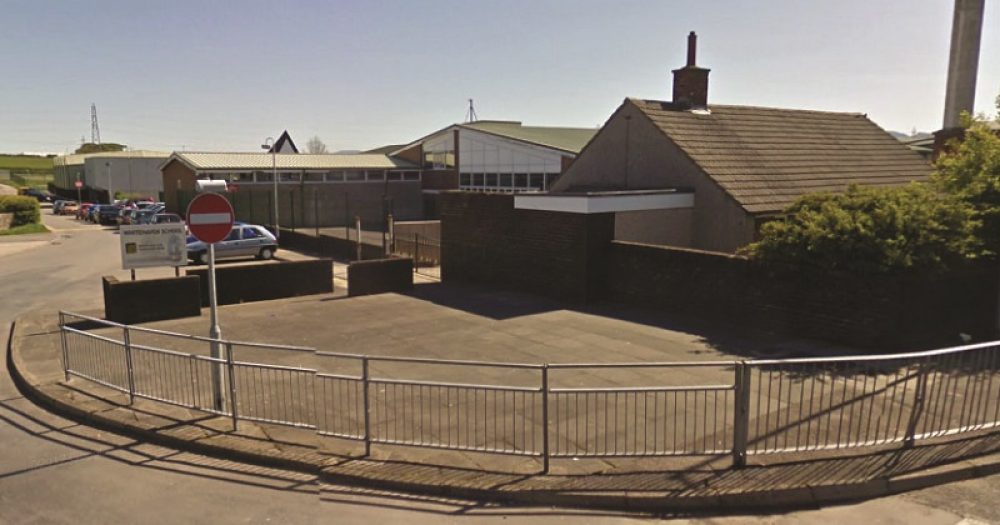Attempts by the Bright Tribe academy trust to create an “axis of improvement” for schools in rural Cumbria failed because it was prevented from taking on more than one school, it has emerged.
Copies of correspondence between Bright Tribe’s founder Michael Dwan and the Department for Education reveal the trust’s dismay at having its bid to run two more schools in the county turned down, and detail how Dwan even threatened to take the government to court if its wishes were not met.
In 2013, Bright Tribe set out plans to take over the failing Stainburn and Southfield schools in Workington, having recently adopted the nearby Whitehaven School.
Bright Tribe Trust has failed children in Cumbria
But despite a vote by governors of Stainburn and Southfield in favour of joining Bright Tribe, officials ruled in 2014 that the two schools should merge to form a single Workington academy and move to Lakes Academy Trust, a chain set up by a local college.
This prompted a row between Dwan, the government and Cumbria county council.
Dwan wrote in June 2014 that Bright Tribe had provided improvement support at Stainburn and Southfield schools since 2013, and had the “local knowledge” and community support to run the schools following their merger.
He questioned the Lakes trust’s experience, and insisted that ministers should overrule the decision, threatening legal action if the school was placed elsewhere.
“We believe we provided the best bid, we have the local knowledge and we had already gained the support of the community,” he wrote.
“Should the minister decide to award the sponsorship of the new Workington academy to the Lakes Academy Trust, we need to advise that Bright Tribe would, as a matter of course, consider all options available to us including an application to seek a judicial review of that decision.”
A spokesperson for Dwan said at the time that Whitehaven Academy “had just achieved its best ever results having worked intensively with the trust for a year”. The school was subsequently placed in special measures in December 2016, and Bright Tribe set out plans to walk away from the school last November, amid a row with parents over declining standards and the state of buildings.

“The vision and platform for local education improvement had always been envisaged as a closely working cluster as opposed to any school operating in isolation.”
Dwan claimed Cumbria council had “delayed, obstructed and deliberately confused and in some cases threatened” the schools, and even told headteachers and chairs of governors “that they would not allow Bright Tribe to convert the schools and they were not having Bright Tribe in Cumbria full stop”.
But the council rejected the criticism, and accused Bright Tribe of failing pupils at Whitehaven, which the trust will soon give up.
“We do not recognise the description of events contained in this correspondence,” a council spokesperson said.
“Bright Tribe Trust has failed children in Cumbria; as a result the regional schools commissioner removed them as sponsor of Whitehaven Academy. The county council is now working to support the appointment of a new sponsor who can bring about the improvement so urgently needed.”
In March, the government named the Cumbria Education Trust as its preferred new sponsor for Whitehaven. Ironically, it is the same trust that ended up running Workington Academy.
Trust kept £1m expansion funding, despite missing targets
The Department for Education has made no attempt to claw back the £1 million it gave to an academy trust to take over schools, despite it failing to meet key targets.
In late 2015, Bright Tribe was handed £995,000 from the government’s northern fund to allow it to take on more schools in the north of England.
Government documents obtained by Schools Week show that the DfE warned Bright Tribe it could face having to return the money if it did not meet agreed “key performance indicators” for the cash.
But the trust, which is handing back all but one of its schools in the north of England, has blamed the government for the target failure, and claims it was not given enough opportunities to take on schools in the region.
The grant offer letter and contract signed by Bright Tribe show that the money was given on an agreement that a minimum of three academies – two of which had to have been rated “inadequate” by Ofsted – would join the hub by May 2016, and that arrangements for conversion would be put in place by the summer of that year.
But Bright Tribe did not take on any new schools until mid-2017, when it took over at Grindon Hall Christian School in Sunderland and the Haltwhistle Lower and Upper Schools in Northumberland, all of which it now plans to hand back.
In the documents, the DfE explained that it “may take steps to reclaim the grant” if the trust fell “significantly short of meeting any of the KPIs”. Schools Week understands no such steps have been taken, despite demands from campaigners. The DfE would not comment on the situation.
A Bright Tribe spokesperson said the trust “entered the Northern Hub negotiations on the understanding that sufficient schools would be brokered to the Trust to allow a viable hub to be formed”.
“Despite strong representations and proactive proposals being made by the Trust insufficient schools were brokered or offered to enable a viable hub to be formed.”








Your thoughts